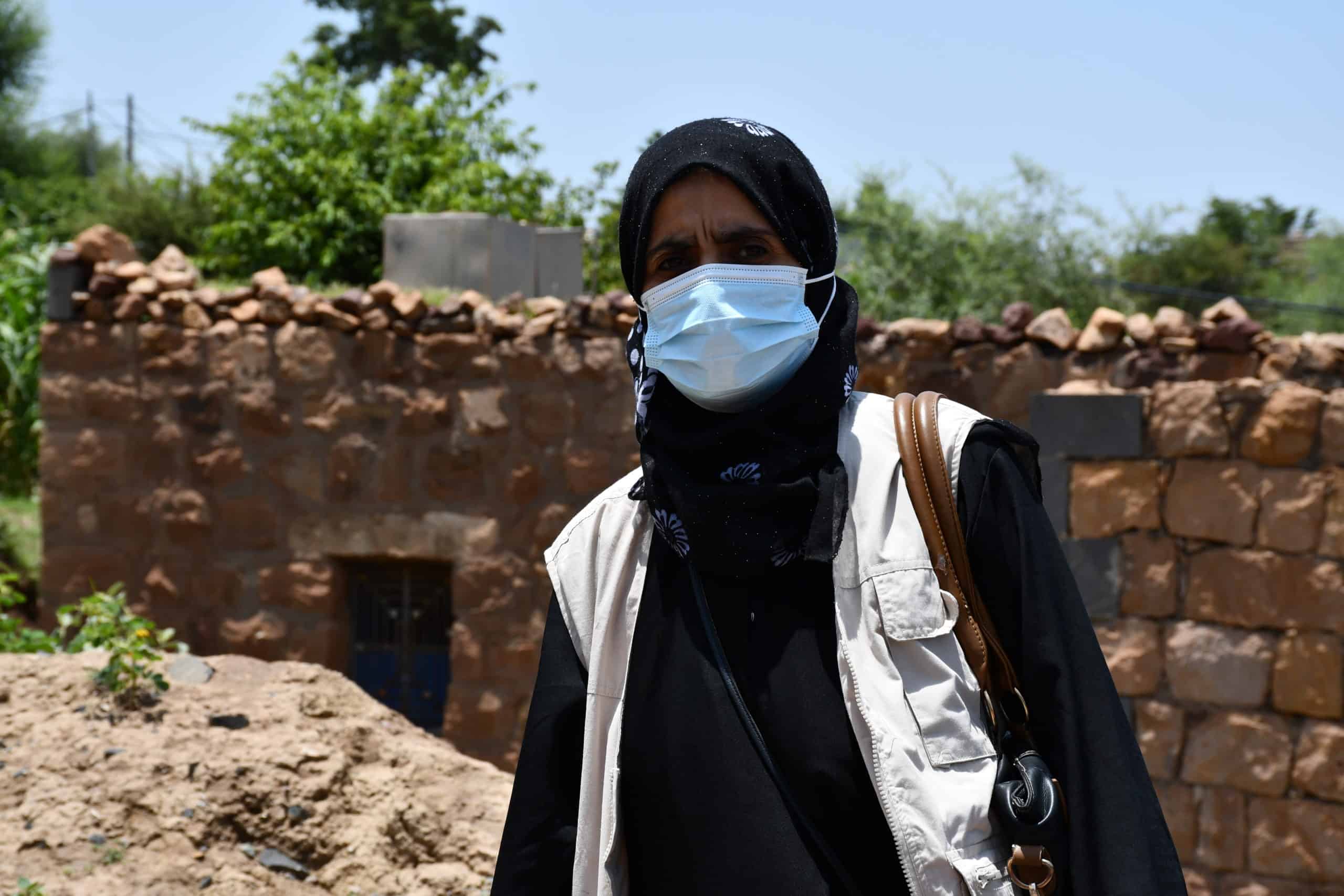Helping a Couple in Yemen Achieve their Dream of Parenthood
November 22nd, 2021 | story
Abeer and her husband, Abdulbaset, live in harsh conditions in the Ta’izz Governorate of Southern Yemen. Abdulbaset lost his job due to the ongoing political conflict in the country, and like most women in Yemen, Abeer does not work. Despite the challenges they face, they have always wanted children.
When Abeer conceived soon after their marriage, they were ecstatic. “I couldn’t believe that I got pregnant and Abdulbaset was also in disbelief that finally he would have a child,” she explained. However, that happiness turned to sorrow when, four months into the pregnancy, Abeer miscarried. “I wasn’t aware that I should seek care during my pregnancy even if I was feeling well,” she said sadly.
Frequently, women in Yemen don’t have access to quality health care and information. Clinics and health care providers are often far away, costly, understaffed and undersupplied. This is compounded by the fact that many Yemenis adhere to traditional ways of managing health issues, including by using herbal medicine and relying on information from elders that is often inaccurate. Further, many people seek medical care only when it is critical—and often too late.
The USAID-funded Systems, Health and Resiliency Project (SHARP) helps women like Abeer by training local midwives to serve as the link between the community and health care systems, ensuring greater access to care. This improves the quality of reproductive, maternal, newborn, and child health, as well as nutrition services, at the community level, reducing mother and child mortality.
Asmahan Saeed, a well-known community midwife, met Abeer through SHARP. Asmahan began visiting Abeer at home to educate her about prenatal care and ways to ensure a healthy pregnancy in the future.
“Like many of the women in the village, Abeer wasn’t receiving prenatal care because she assumed that she was in good health,” Asmahan said. “I also counseled her on the importance of adopting a family planning method for a couple of months before she tried to get pregnant again.”

When Abeer conceived the second time, Asmahan provided home prenatal care and guidance on when to seek care from a doctor. With Asmahan’s support, Abeer gave birth to a healthy baby, who she named Monwar.
I won’t forget Asmahan’s help. I was able to maintain my pregnancy and finally I gave birth to my first child. We have never been so happy,” Abeer said.
After the delivery, Asmahan continued visiting Abeer and Monwar for six weeks to provide postnatal care. This included checking their vitals and educating Abeer on the importance of breastfeeding and ways to identify danger signs in newborns.
Trained midwives like Asmahan ensure that Yemeni women receive skilled care during pregnancy, childbirth, and post-pregnancy. USAID has trained over 200 community midwives in Yemen to support more than 13,000 Yemeni women and 7,000 children under the age of two and to help them lead healthier lives.
In 2020 alone, USAID helped more than 92 million women and children worldwide access essential, lifesaving care, preventing needless deaths, and helping families and communities thrive.
This story was originally posted by USAID.
We strive to build lasting relationships to produce better health outcomes for all.